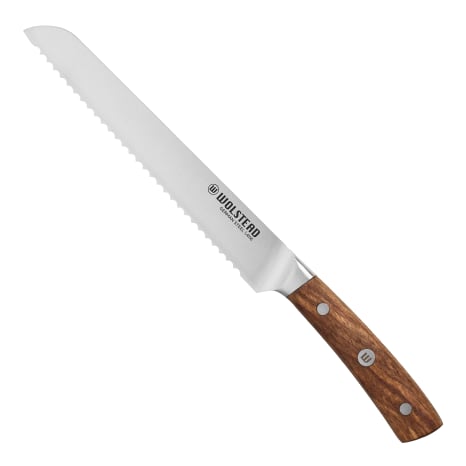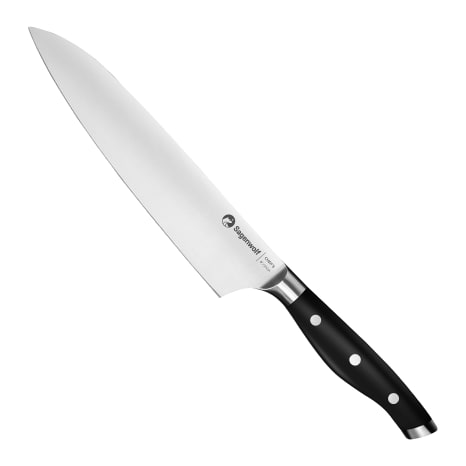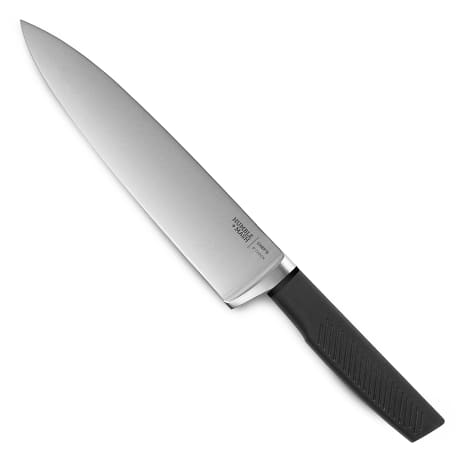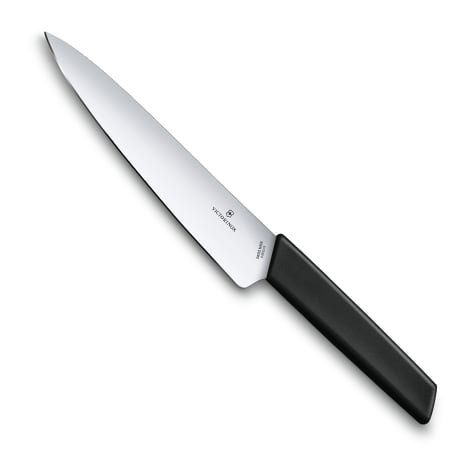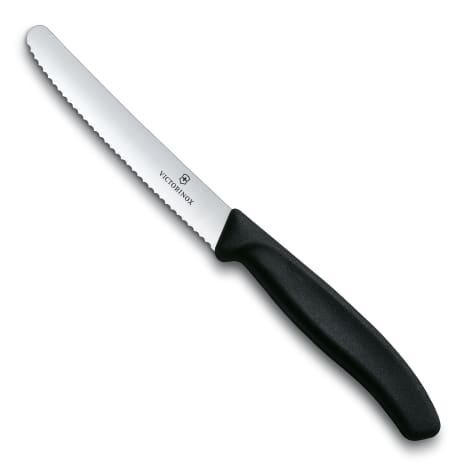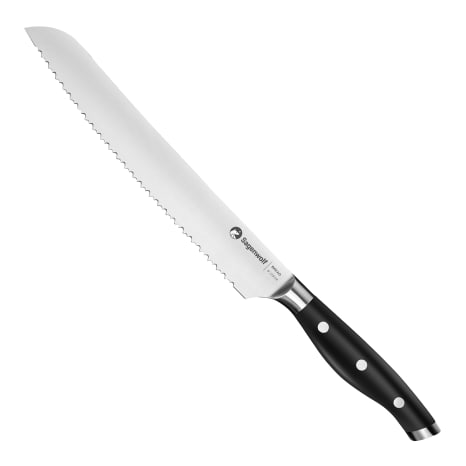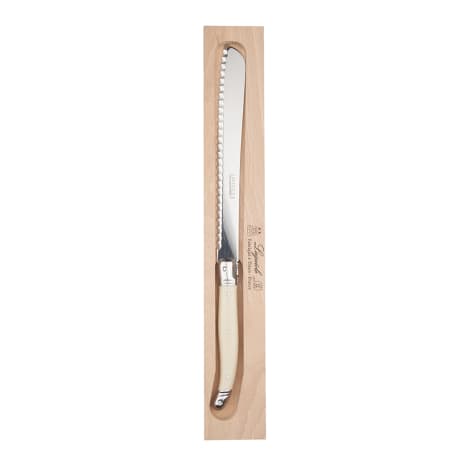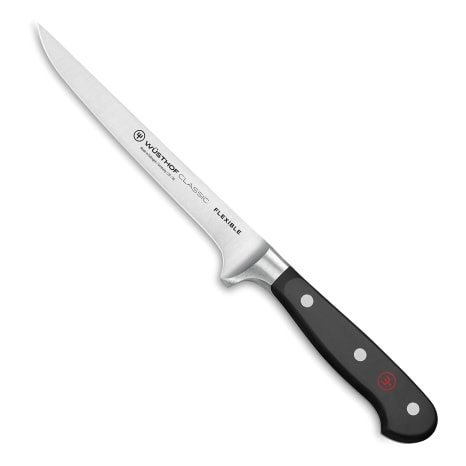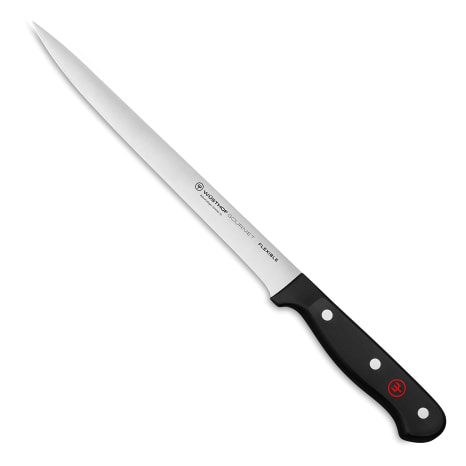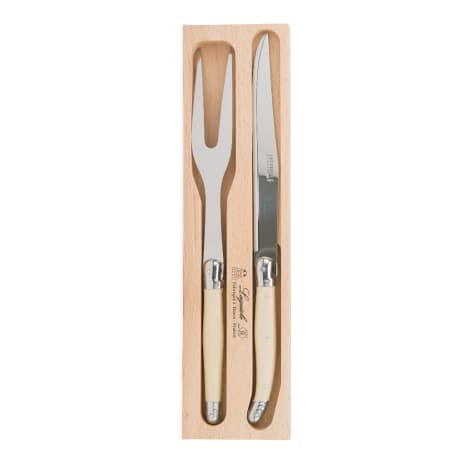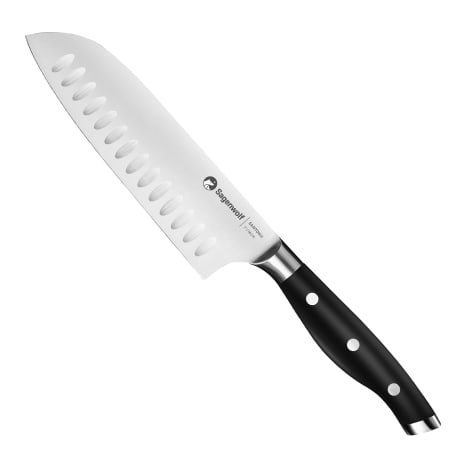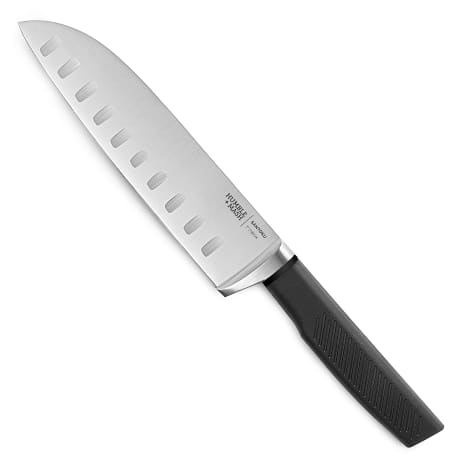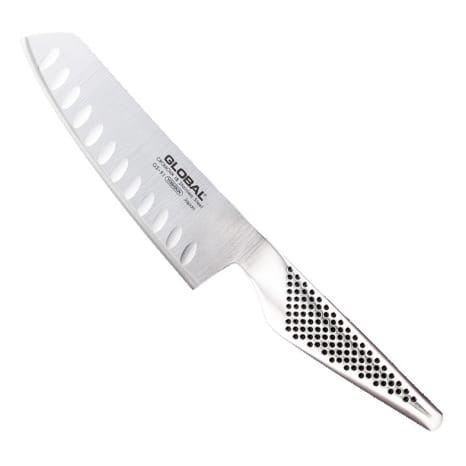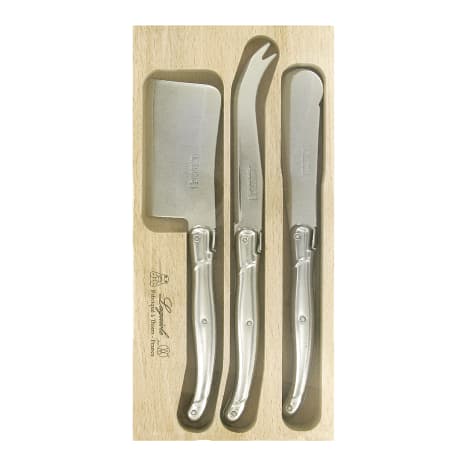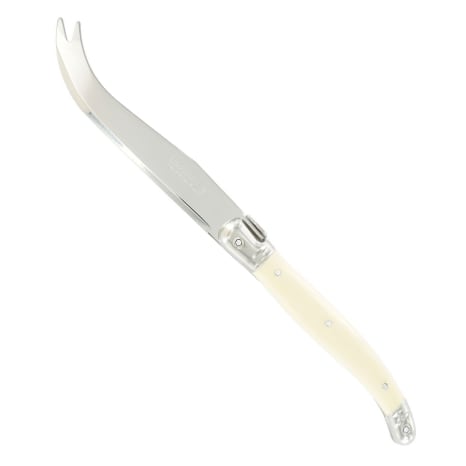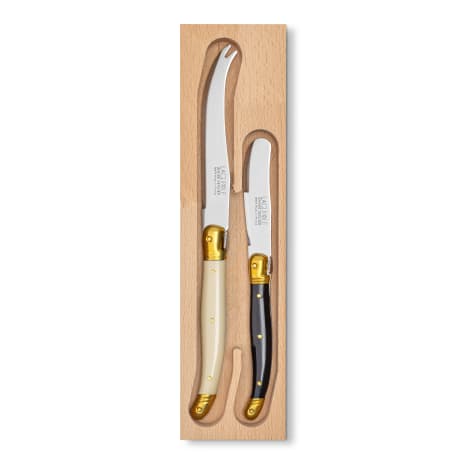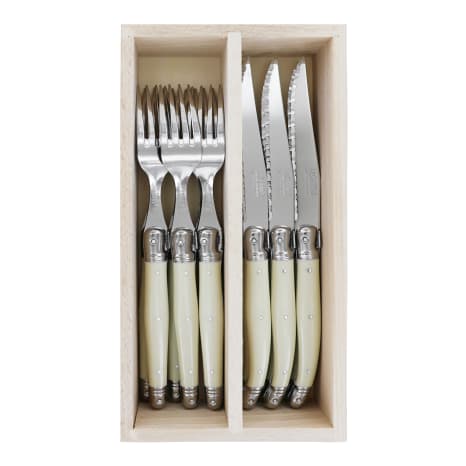–A guide to building your collectionHow to choose the perfect knife 🔪
With so many knives to choose from, it can be difficult to know where to start with creating your personal knife collection. Do you really need a carving knife if you have a chef’s knife? What’s so great about a Santoku knife? In a bid to make these important life choices easier, we've created a guide to help you choose the best options for your kitchen.
–Honouring each knife's purpose
A carving knife won’t work to cleave and, if it does, you’re probably using too much force and damaging the blade. A chef’s knife is a great multitasker, but for delicate work like de-seeding peppers and coring tomatoes, a small and nimble paring knife is better.
This doesn’t mean that you need to buy every single knife under the sun, but you should consider what you enjoy cooking most often and tailor your knife collection to suit your needs. Very importantly, you should also choose a knife that feels right in your hand — comfortable, balanced and the right size. And once you've got a good foundation of knives, build on it as you need more specialised blades for specific tasks.
New arrivals in Knives
–So, how do I know which knives I need?
You can cut out some of the thinking by choosing a knife set but, if you're building a custom collection, it's good to get together a base of must-have knives.
Start with the essentials, then build on that with more specialised knives designed with specific features for the purpose they serve.

1. Chef's knife
A proper chef's knife is where most epic knife collections begin. These versatile, classically shaped knives will make light of all your basic food preparation tasks, like chopping and slicing fresh ingredients. The all-rounder knife that every kitchen needs — a good chef’s knife can change how you feel about cooking altogether.
Most popular Chefs Knives & Cooks Knives
2. Paring knife
Paring, peeling and slicing are made easy with these nimble guys and they are great if you have to take only one knife on a picnic or camping. Just decide whether you need a serrated blade — great for cutting through soft-skinned tomatoes — or a straight blade. Or, choose a mix of each (you can never have too many paring knives 😉).
Most popular Paring Knives & Peeling Knives
3. Bread knife
Squashing a fluffy loaf with a non-serrated knife is not okay. For gently slicing through bread without tearing it, a bread knife is what you need. The large serrations bite through the crispiest crusts and leave the soft crumb inside intact. Respect the freshly-baked baguette, people.
Most popular Bread Knives
4. Utility knife
For a multitasking, versatile knife, that falls somewhere between a shorter paring knife and a larger chef's knife, choose a utility knife. Great for smaller tasks like slicing meats and cheeses, trimming fat from proteins and prep work on fruit and veg. These are built for tasks too big for a paring knife but too small for a chef’s knife — the slightly longer blade is convenient when you don’t need the heft of a chef’s knife, but a paring knife is just too small to be comfortable.
Most popular Utility Knives

5. Fillet knife
A fillet knife should have a flexible blade for delicate fish and meat preparation — specifically removing skin and separating bones from fish or meat, for example.
6. Boning knife
Now we’re getting a little technical. The boning knife has a narrow, flexible blade with a finely tapered tip. This shape makes it much easier to work around bones — whilst causing minimal damage to the surrounding meat. Ideal to have if you plan on doing a lot of your own meat prep.
Most popular Boning Knives & Fillet Knives
7. Carving Knives & Sets
Taking on a roast leg of lamb, whole chicken or anything else requiring carving is much easier and more fun with the right tools. Sure, you could hack at it with your chef’s or bread knife, but armed with a carving set, you’ll find yourself looking forward to your next chance to slice it up. The two-pronged fork keeps meat still and inflicts minimal damage, while the long, narrow blade of the carving knife quickly cuts slices, and cuts through the joints of poultry easily.
Most popular Carving Knives & Sets
8. Cleaver
Thwack! is the sound that a cleaver makes when it chops through a bone or large chunk of vegetable or meat. Light work of heavy tasks — it’s not subtle, but we like it. Use it to crack through the back of a lobster, or when your butchery tasks have you cracking marrow bones open.
Most popular Cleavers & Choppers
9. Santoku knife
Ah, the Japanese chef’s knife. Usually with a shorter blade length than a chef's knife and featuring and straighter cutting edge, a Santoku knife is another great all-rounder built for chopping, slicing and dicing. Often featuring small divots or scallops along the blade, which create pockets of air to lessen friction and reduce sticking — especially useful when working with extra thin or delicate slices. The straighter blade style facilitates an up-and-down push cut motion vs. the typical Western rocking chopping motion. Another identifying characteristic is, is the rounded "sheep's foot" tip of this style of knife.
Most popular Santoku Knives & Asian Knives
10. Sashimi or Yanagiba knife
For the ultimate homemade sushi fanatic, the sashimi knife is a pro choice. Also referred to as a Yanagiba knife, the blade is sharpened on a single side for superior cutting performance and to reduce food sticking — it’ll turn sushi-making into a dream. Its slim and long blade makes it suitable for the wafer-thin cuts often needed when preparing sushi and sashimi. Keep it sharp, and it’ll reward you for years.
11. Vegetable knife
With tapered, fluted, thin, angled and broad blades to protect your pincers, vegetable knives will enhance your veg chopping experience and make it a much more efficient, enjoyable task. Primarily from the Japanese end of the spectrum, they help to process veggies quickly and easily.
Most popular Vegetable Knives
12. Mezzaluna
Make light work of chopping your herbs fine with a mezzaluna. Mezzaluna means half-moon or crescent in Italian and describes the blade. Work it backwards and forwards over your fresh herbs to chop them pronto.
Most popular Mezzalunas & Specialty Knives

13. Cheese knife
Love your cheese? Then equip yourself with a cheese knife specially designed to stop cheese sticking and to make serving a whole lot easier. Love a variety of cheeses? A cheese knife set could be your best bet.
Most popular Cheese Knives & Cheese Sets
14. Steak knife
There is nothing like a good steak but the enjoyment of your robust meaty dish can be diluted if not given the right utensils. Invest in a set of steak knives to make light work of sumptuous slabs.
Most popular Steak Knives
There’s exhilaration to be had from wielding the right knife in the kitchen. Browse the full range of knives on Yuppiechef to help you on your way.
